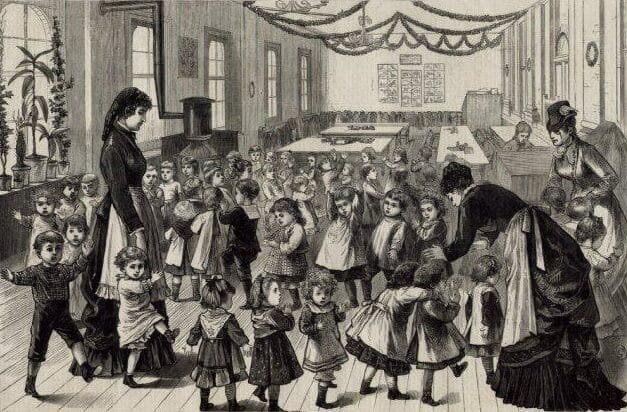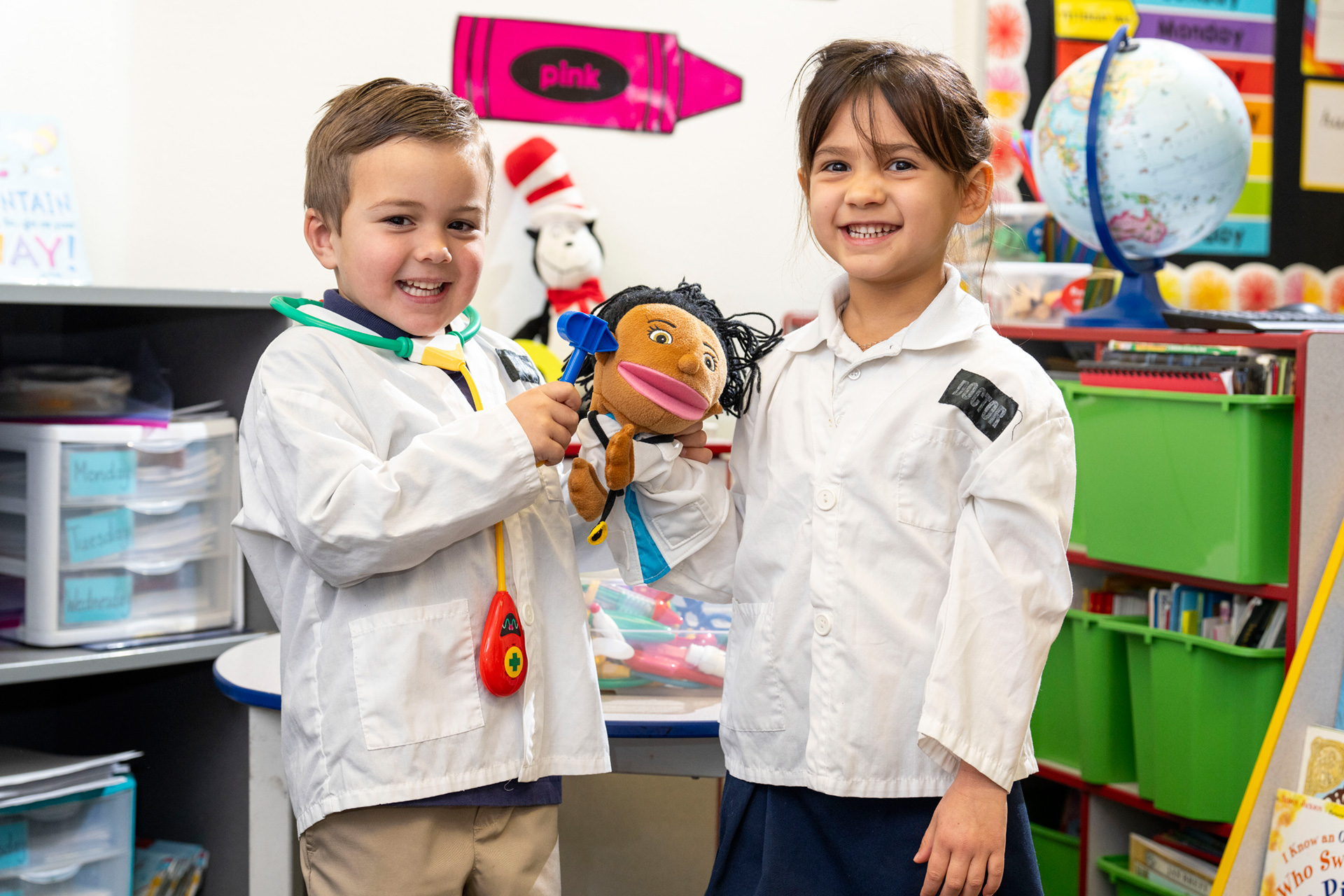Interactive Kindergarten activities that encourage creativity and exploration
Wiki Article
All Regarding Quality College: Important Truths and Improving Experiences for Youthful Learners
Quality college plays a critical function fit young students' futures. It incorporates essential scholastic subjects and nurtures social abilities with structured communications. In addition, after-school activities give chances for creative thinking and teamwork. Adult participation further improves this structure, sustaining children in their academic trips. As these components intertwine, they create an extensive academic experience. However, what details methods can moms and dads and teachers employ to optimize this growth?
Recognizing the Elementary School Curriculum
As students start their elementary school journey, they encounter a curriculum developed to construct foundational skills and expertise across various topics. This curriculum typically includes core areas such as maths, language arts, scientific research, and social studies. Each topic is structured to cultivate essential reasoning, creative thinking, and problem-solving capacities, crucial for future scholastic success.Language arts concentrate on reading, creating, and communication abilities, fostering students' capability to share themselves clearly. Math introduces basic ideas, including addition, reduction, and later on, multiplication and division, preparing for much more complicated analytical. Science encourages inquiry and exploration, stiring up curiosity concerning the all-natural world, while social researches infuses an understanding of community and multiculturalism.
In enhancement to core subjects, the curriculum often includes arts and physical education, supplying a well-rounded academic experience that promotes both physical and intellectual growth. Subsequently, quality institution acts as a necessary system for lifelong learning.

The Framework of Elementary School Education
While elementary school education and learning varies by area and establishment, it generally complies with a structured structure that promotes progressive knowing. Generally, grade institution incorporates a variety of qualities, typically from preschool through 5th or 6th grade, depending on the instructional system. Each quality level corresponds to certain developing milestones, with educational program made to develop upon anticipation.Courses are generally arranged right into core topics, including maths, language arts, science, and social research studies, making certain that pupils get a well-rounded education and learning. Direction typically incorporates direct teaching with hands-on tasks, promoting interaction and vital thinking.

Analysis approaches differ yet typically consist of tests, quizzes, and jobs to assess trainee understanding. Furthermore, educators usually collaborate to create interdisciplinary units, boosting the finding out experience. Overall, the structure of elementary school education aims to grow fundamental abilities, prepare pupils for future scholastic challenges, and promote a love for finding out that extends beyond the class.
Social Skills Growth in Early Learners
Elementary school education not just concentrates on academic abilities but additionally plays a substantial role in the development of social skills among very early learners. During these formative years, kids engage in different activities that urge communication, cooperation, and interaction with peers. Group jobs and cooperative discovering setups provide opportunities for children to exercise sharing, discussing, and solving disputes.In addition, organized play fosters vital skills like empathy and understanding, as children learn to acknowledge and react to the feelings of others. Via guided social interactions, educators aid pupils develop crucial listening and conversational skills. As kids navigate friendships and group characteristics, they acquire confidence in their social abilities.
The Duty of After-school Activities
After-school activities play a substantial function in boosting the instructional experience of grade school students by supplying opportunities for personal development past the classroom. These activities enable trainees to check out abilities and interests, promoting creative thinking and self-expression. Involvement in sports, songs, art, and clubs grows teamwork, leadership skills, and a feeling of belonging.In addition, taking part in such activities promotes physical health and health, urging pupils to keep an energetic way of life. Grade School. Extracurricular programs also function as a platform for pupils Visit This Link to build relationships and develop social skills, which are necessary for their general advancement
As pupils navigate their rate of interests beyond academics, they gain valuable experiences that add to their positive self-image and durability. Eventually, these tasks play an important role fit well-shaped people, preparing them for future challenges both in and out of the class.
Sustaining Knowing With Parental Involvement
Parental involvement greatly boosts the educational journey of elementary school pupils, as it fosters a helpful setting that reinforces discovering. Involved moms and dads contribute to their children's academic success by going to school events, aiding with research, and preserving open communication with instructors. Grade School. This involvement not just improves trainees' inspiration yet additionally grows a sense of belonging and self-worthStudy suggests that youngsters whose parents are proactively included tend to have greater qualities, much better participation, and improved habits in school. Additionally, adult interaction best site encourages the growth of essential life abilities, such as time monitoring and duty.
Schools can promote this participation by holding workshops, offering resources, and motivating regular comments. By creating collaborations in between parents and educators, elementary school can assure a complete method to trainee development. Eventually, parental participation works as a cornerstone for cultivating a favorable academic experience, profiting both students and the college area as a whole.
Frequently Asked Concerns
What Are the Common Grade College Hours for Students?
Regular elementary school hours for pupils typically vary from 8:00 AM to 3:00 PM, varying by district. Lots of schools include a lunch break and recess, making sure pupils have time to reenergize during the day.Exactly How Do Grade Schools Address Diverse Learning Needs?
Grade institutions deal with diverse learning demands with set apart direction, tailored lesson plans, and support services, guaranteeing all trainees get appropriate sources. Teachers collaborate with experts to produce comprehensive settings that cultivate specific development and engagement.What Is the Role of Innovation in Elementary School Education And Learning?
Technology in grade institution education and learning enhances discovering with interactive tools, customized discovering experiences, and access to huge sources. It fosters cooperation among pupils and instructors, preparing youngsters for a technology-driven future while sustaining diverse educational needs.Just How Can Parents Aid With Homework Efficiently?
Moms and dads can assist with homework properly by creating an organized atmosphere, encouraging freedom, providing sources, and supplying assistance without investigate this site directly providing answers. Interaction with instructors additionally improves understanding of expectations and promotes scholastic success.What Are Typical Challenges Faced by Elementary School Trainees?
Common difficulties faced by elementary school pupils include difficulty with time administration, recognizing intricate concepts, maintaining emphasis throughout lessons, navigating social characteristics, and balancing academic responsibilities with extracurricular tasks, all of which can influence their total efficiency.As trainees start their grade institution trip, they encounter a curriculum made to construct fundamental skills and expertise across numerous subjects. Normally, quality college includes an array of qualities, frequently from preschool via sixth or 5th grade, depending on the academic system. Extracurricular activities play a considerable function in enhancing the academic experience of quality institution students by offering opportunities for individual growth beyond the classroom. Adult involvement substantially enhances the educational journey of grade school trainees, as it fosters a helpful atmosphere that reinforces discovering. By developing collaborations between educators and moms and dads, quality colleges can guarantee a comprehensive approach to pupil development.
Report this wiki page